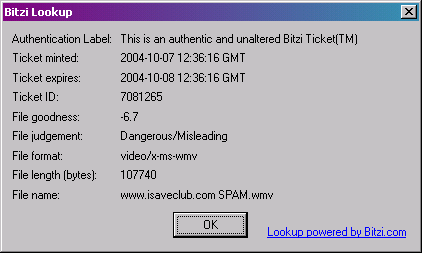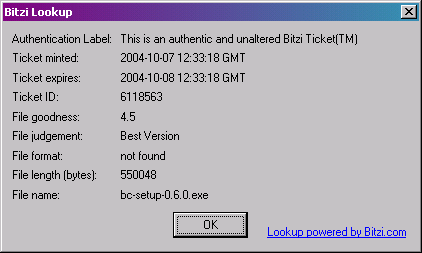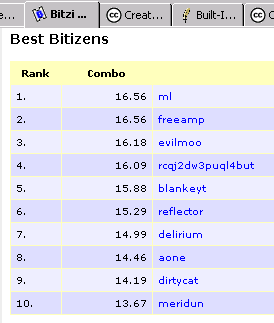Last week (September 22) the Wall Street Journal printed “Market Gains As Bush Rises and Kerry Falls” (unauthorized copy found here).
I’m extremely skeptical that the market should be read as approving or disapproving of Bush or Kerry, or particularly responding to individual polls. There’s so much noise in the market that I’d only expect an unthinking partisan to read candidate preference from market index behavior, particularly when the two candidates who can win are so similar policy-wise (though a partisan wouldn’t agree).
However, it should be possible to design securities which explicitly tease out the effect of a candidate’s election on the market (or something else). One approach is I believe known as “conditional futures”. Three securities would do it: a) has a value determined by whether Bush wins, b) has the value determined by a market index on a date in the future, and c) has the value determined by a market index on the same date in the future if Bush wins, or zero otherwise. If c/a > b then the futures market thinks a Bush win is good for the market index in question. Alternatively b) could be determined by the value of the market on the same date in the future if Bush loses, in which case if c/a > b/(1-a) then the market thinks a Bush win is good.
You can see some claims along these lines in a play money (unfortunately) market:
(In calculations below I use last trade if available, otherwise average of bid and ask.)
bid ask last
/ / /
61 62 61 http://www.ideosphere.com/fx-bin/Claim?claim=Bush04
Bush is likely to win.
47 48 NA http://www.ideosphere.com/fx-bin/Claim?claim=Stocks
25 30 25 http://www.ideosphere.com/fx-bin/Claim?claim=GBStok
25/.61 = 41 < 47.5
Bush win means lower stock returns?
51 53 52 http://www.ideosphere.com/fx-bin/Claim?claim=GBNuke
33 39 34 http://www.ideosphere.com/fx-bin/Claim?claim=JKNuke
52/.61 = 85 < 34/.39 = 87
Bush win means slightly lower chance of US getting nuked?
CORRECTION: I misread *Nuke, which pay if the US does not get nuked. I should've written: "Kerry win means slightly lower chance of US getting nuked?"
75 77 76 http://www.ideosphere.com/fx-bin/Claim?claim=Terr10
20 74 NA http://www.ideosphere.com/fx-bin/Claim?claim=GBTerr
47/.61 = 77 > 76
Bush win means very slightly higher chance of terrorist attack in US?
Note these claims are mostly new with extremely thin volumes and probably don’t tell us much of anything at this point about the consequences of a (likely) Bush win, but one gets the idea, I hope.
Related notes:
Tradesports and the Iowa Electronic Markets (two real-money markets, though investment in IEM is limited) seem to be garnering lots of attention, at least amongst people I read. Geekmedia has yet another electoral map based on Tradesports markets for individual state outcomes (via Patri Friedman).
I think it isn’t widely known that large scale organized betting on election outcomes in the U.S. is a back-to-the-future phenomenon. I didn’t know until a few weeks ago when I encountered Historical Presidential Betting Markets while flipping through the Journal of Economic Perspectives at the newish San Jose main library (’tis very nice that it is a shared facility with SJSU, which means many more journals available to the general public). I indend[ed] to blog a summary.
Drifting:
Koleman Strumpf, one of the authors of the aforementioned paper, has also written on the effects of P2P — to much to read, too little time — and is an indie music fan. Funny quote from one of his media cites, The down low on downloads:
Strumpf, whose own tastes run toward independents, says it’ll be difficult for a study like his to measure their financial prospects. “The kind of albums that are put out by indie labels are not economically very important,” he says. “I know that must sound like a terrible statement. Believe me, if you look at my music collection, I’ve come to the conclusion that most of the music I listen to is economically irrelevant.”
 Tyler Cowen cites a Harper’s Index factoid:
Tyler Cowen cites a Harper’s Index factoid:


